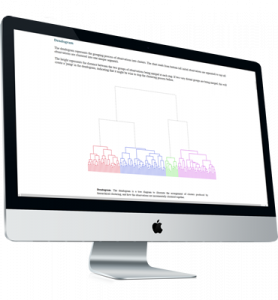ABB Electric (predictive)
Try it!
ABB Electric faced a flat market for electric equipment (e.g., transformers, breakers, relays) used by electrical utilities to distribute power. The company was exploring options to increase market share by identifying “switchable” customers, i.e., customers who are currently buying products from competitors, but could potentially switch to ABB through additional marketing efforts targeted to them. There are four competitors (ABB, GE, Westinghouse, and Edison), and students are provided with data from 88 customers about their perceptions of the four competitors along several attributes, such as availability of spare parts, price, and warranty. Students are asked to identify switchable customers, and to articulate the changes to attributes that are most likely to induce specific customers to switch to ABB. This case is set in a B2B context but can be used in any marketing course to illustrate the application of choice modeling to predict customer choices. Although the case is set in the 1980’s, the insights learned should help students to gain deep and generalizable insights about how customers make choices, and to use those insights to target marketing efforts to specific customers or to customer segments.
A case study is deemed managerially complex when its solution is ambiguous, unclear, or requires extensive judgment calls; it is best suited for advanced students or executive education settings.
A case study is deemed technically complex when its solution requires extensive data manipulation, or when it requires to juggle with more than one marketing model.
Some case studies depict historical problems taking place decades ago. While graduate students and executive education participants have no problem with these cases, undergraduate students might find them dated.

- Registered instructors can freely evaluate all Enginius case studies. Register here.
- You can purchase each case study individually, or as part of a package.
- Each case study contains a data set, a case problem (pdf), and a case solution (pdf). The pdf files available on the main case study page linked above. Lookout for these links:




